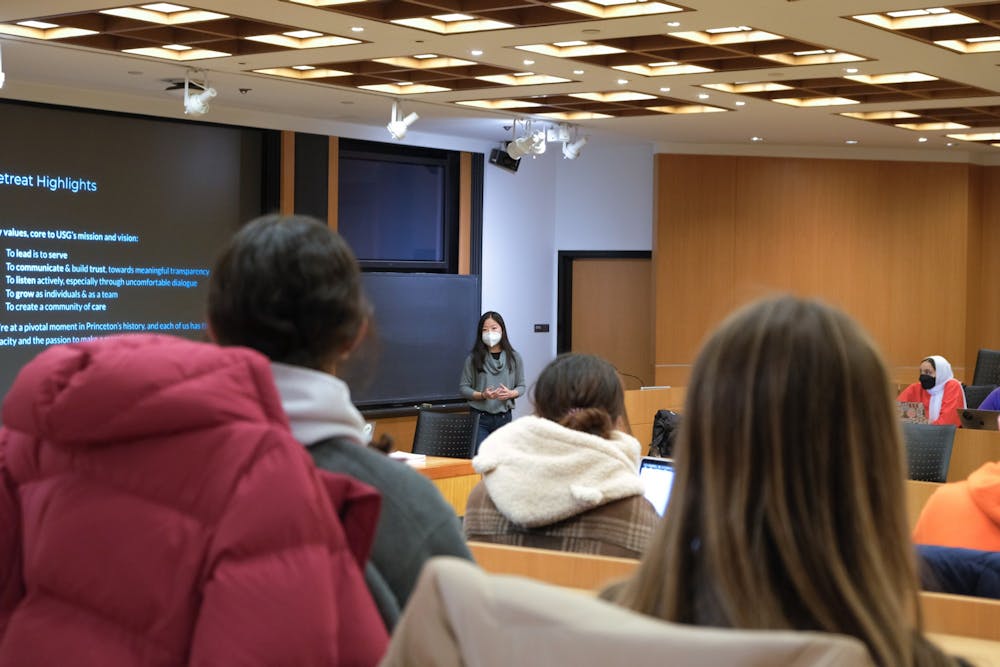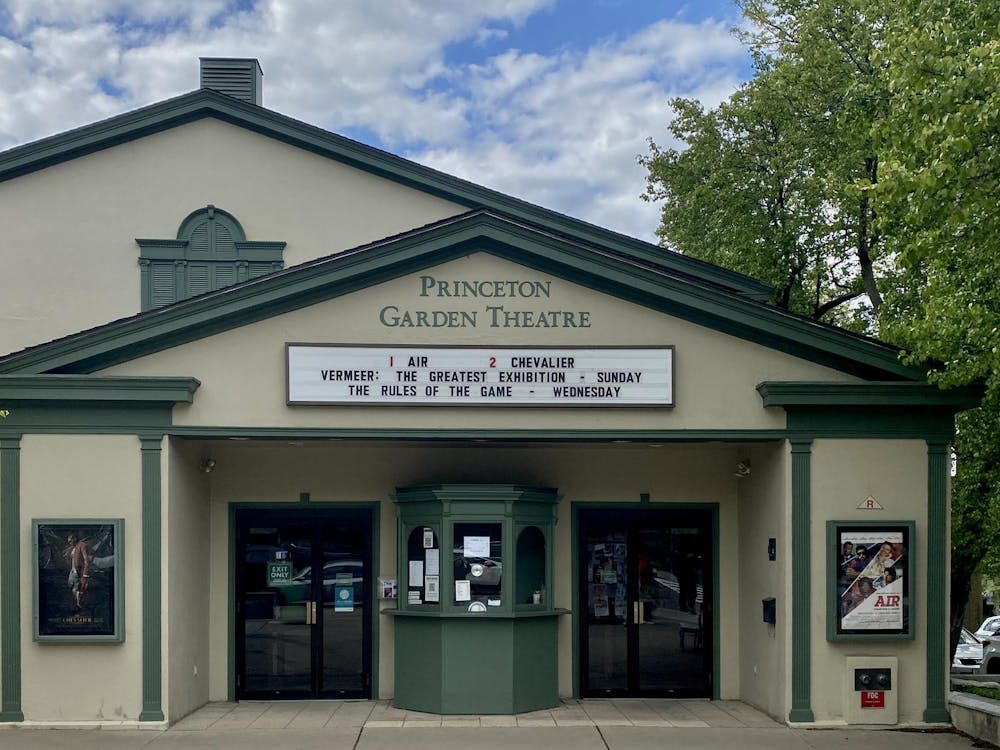In their first in-person meeting of the semester, the Undergraduate Student Government (USG) Senate approved a budget of about $230,000 for the semester.
USG President Mayu Takeuchi ’23 explained the context behind a decrease in the budget as compared to last year.
“In the recent semesters, USG had been operating on a significantly larger budget than it previously had,“ she said, “probably because we were receiving additional funds from central University funds to help supplement programming that could build community as we come out of this pandemic. This year we are operating on more of a typical pre-COVID budget.”
This means that USG will likely host fewer events throughout the semester. Major expenses in the budget include the projects board, Lawnparties, USG-sponsored movies, and Tigers in Town, although the Tigers in Town budget has decreased from last year.
Deputy Dean of Undergraduate Students Thomas Dunne clarified during the meeting that Tigers in Town was originally started as a way to make use of student fees and USG funds that would’ve gone unspent during the pandemic. At one point, “Tigers in Town was really the only thing happening on campus,” he said.
“We are not coming into this semester with a large surplus from last semester,” said USG Treasurer Adam Hoffman ’23. “We hope to have somewhat of a surplus for the upcoming semester, but also at the same time make sure that we can utilize the resources that we have to put on great programming for this semester.”
He also further expanded upon the financial responsibility within USG.
“We collect our money from students’ activity fees. That means we’re the stewards of the money for our fellow students. Therefore, it’s really, really important that we be responsible with how we're treating our money, and what we’re doing with it,” he said.

The 22 voting members in attendance voted in favor of the budget, except for one member who abstained.
The Senate also voted unanimously to confirm new committee members, including four to the Diversity, Equity, and Inclusion (DEI) Committee, eight to the Undergraduate Student Life Committee (USLC), five to the Campus and Community Affairs (CCA) Committee, 16 to the Sustainability Committee, and three to the Social Committee. Luke Baxter ’24 and Cynthia Nwankwo ’25 were confirmed as Co-Chairs for Alumni Affairs.
Student Groups Recognition Committee (SGRC) Chair Derek Nam ’23 introduced a number of student organizations that SGRC has approved to form. The committee met with nine potential clubs this semester and approved seven, including Friends of MSF (Médecins Sans Frontières) at Princeton, Princeton University Caledonian Society, College Association for the Research of Principles (CARP) - Princeton, First Generation Investors, Princeton Mycology Society, Women in Medicine, and Readers Who Invest. The groups were approved unanimously by the Senate.
Projects Board Co-Chair Nelson Dimpter ’22 and Chinese Student Association (CSA) Co-President Laura Fang ’23 presented a funding request for a CSA speaker event on Thursday, Mar. 24 with YouTube personalities the Fung Bros. The senate voted unanimously to allocate $1,500 to the group.

Academics Chair Austin Davis ’23 gave an overview of the results of a health survey that was sent to students in November in response to complaints about student health issues like the “Princeton Plague” and its negative impacts on the student academic experience.
Davis reported that 90 percent of 207 respondents said they had been ill at some point of the semester, with 80 percent having been sick multiple times. He noted that the data may be skewed given that students who had the worst experiences with illness were more likely to fill out the survey.
“However, I would say anecdotally, when I think of my friends, my peers, etc., that number isn’t entirely unreasonable,” said Davis.
40 percent of students reported never having gone to McCosh Health Center for their illness, 25 percent reported never missing a class due to illness, and 84 percent reported that their illness had a negative impact on their mental health. According to the survey results, first-year students were least likely to miss class due to illness.
Many respondents reported that attendance policies were not communicated well by faculty, and that having to catch up on work after missing class due to illness created an immense amount of stress. Davis suggested incorporating a Canvas module for all courses with details on attendance policies to help make attendance expectations more accessible.
While one respondent reported experiencing leniency regarding missed classes, another wrote, “When you miss even a day of work here due to illness, it feels like the rest of the semester is doomed. There is an extremely toxic culture around always being productive and coming to class no matter how sick you are. This isn’t just because Princeton students are workaholics — it’s because there is no system in place to help students catch up after falling ill.”
USG Senate meetings are held in Robertson Hall Room 016 at 8 p.m. on Sunday evenings and are open to all.
Correction: This article was updated to reflect that the budget of $230,000 is for a single semester, not the entire year.
Annie Rupertus is a first-year from Philadelphia and a News Staff Writer who covers USG for the ‘Prince.’ She is also a designer for the print issue. She can be reached at arupertus@princeton.edu or @annierupertus on Instagram and Twitter.








